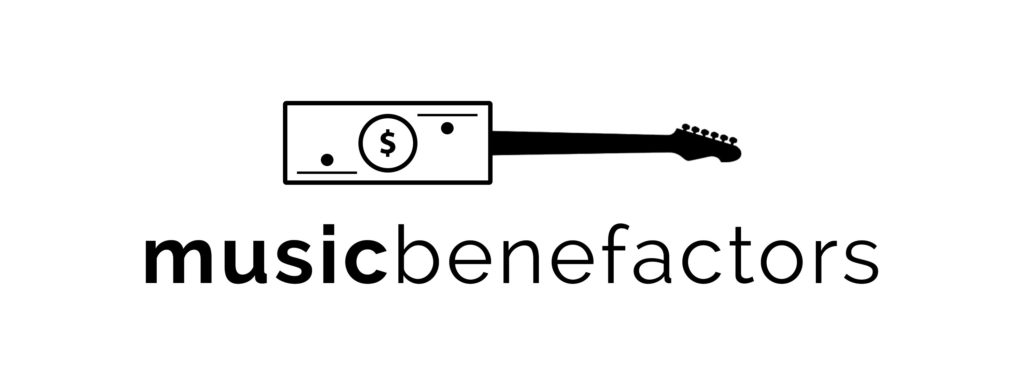MUSIC BENEFACTORS – Investing In Music!

Interview with Matt Lutz (Founder and CEO).
1. Which is exactly the scope of the Music Benefactors company?
Music Benefactors is an SEC registered investment platform. The intention of the U.S. JOBS Act signed into law in 2012 was to make it easier for private companies to access capital to run their businesses. As the leaders of most small and private businesses know, getting investment capital or loans can be very difficult. Banks are notoriously stringent with their lending requirements. Venture capital firms and private investors often take a disproportionate share of the equity and insist on board seats. Title III of the JOBS Act enabled all private businesses to issue and sell securities to the public as long as they use an approved funding portal. Music Benefactors is one of these approved funding portals. We can raise anywhere from $25,000 to $5 million per year per issuer. The first portals were focused on real estate and technology businesses. I felt music is the perfect industry for such a platform. It solves so many problems for independent recording artists and music businesses. The first being access money. Most artists view being signed to a major label as the holy grail. It can be because the major labels have the capital to market music. Besides making good music, marketing is the most important part of the music business. The problem with major labels is they own the intellectual property and the advances they provide artists are essentially very expensive loans. Artists don’t see any royalties until the label recoups the advance plus any money they invested in the project like costs to make and market the music, lunches with managers, nights out in the clubs, etc. When we do an Artist Offering, artists can raise enough money to properly make and market their music. The second solution our platform does is it enables artists to keep ownership of their intellectual property, the master recordings and publishing. We want artists to start acting like real estate developers and private equity firms. These businesses rarely put their own money into projects. Investors provide the capital in return for a share of the profits. Music can work the same way. The artists and investors own the intellectual property with the artists being the CEO and calling the shots. The third thing Music Benefactors does is it enables all music fans and investors regardless of income and net worth to participate in an exciting investment class. Many hedge funds and large private investment firms have been investing in music royalties for years. They know a good thing. Music copyrights in the US last 74 years after a writer dies. When music is being streamed, downloaded, used in tv, film or commercials, the rights holders to the music get paid. Now all investors can share the royalties generated from music. It’s a pretty cool investment.
2. Why do you think that this is the best time to invest in music?
I touched on this above. The “smart money” has been investing in music for years. Because of streaming, the royalties generated are more predictable and can be modeled. Institutions love anything they can stick in an Excel model. It’s just cashflow. If you remove the coolness of music and just look at the cashflow, it doesn’t look much different than other asset classes like real estate, bonds or oil and gas investments. With music you don’t have tenants calling about broken toilets or the environmental issues with oil and gas. The copyrights last more than a lifetime so as long as the music is being played, someone is getting paid. When a song is used in tv, film or commercials, it generates large windfalls to the rights holders. It’s icy on the cake.
3. Which is the expected profit for fan that would like to invest in an artist?
Investing in music projects is not without risk. There will be different levels of risk with each offering we do. Investing in a new artist will be more risky than investing in a music catalog already generating income. The great thing about our platform is you can invest in both. We do offerings for up and coming artists as well as indie labels, publishers, music tech companies. We can provide capital to any viable music project.
4. Is the process of investment for fans/investors from all over the word or are there any legal limitations on your side?
Fans from all over the world can invest. There are limitations for the artists and companies we raise money. This is investing so a US company has to be created typically an LLC or C-corp is created. We issue and sell shares in the LLC or C-Corp very similar to an IPO (Initial Public Offering). The difference being these shares don’t trade publicly yet. A European artist could raise money on our platform but would have to create an US company and have a US principal working at the firm.
5. Streaming has affected the music business, do you consider it as challenge for the roster of your artists?
It really has. A day doesn’t go by without hearing from an artist, especially legacy artists, talk about how streaming has negatively affected their income. Something that is often overlooked is how streaming has positively affected the major labels. Sony, Universal and Warner have all had record years for revenue and profits. The reason why is they are rights holders. They own the master recordings and publishing. Streaming has only exacerbated the problems caused by unfair record contracts. Contracts between labels and artists were written when you could sell CDs for $20 per. The revenue model is so much different now. It takes much longer to receive the same income from an album. Rather than the artists recouping after 1-2 years, it can take decades. With our model the artists and investors are the rights holders so they will collect royalties as soon as the music generates them.
6. Is there any specific time period that the investors can generate profit from the mentioned artists or is it an infinite time?
Each offering is different. We have a bond program, the Music Royalty Bond (MRB) for catalog owners to monetize without selling to investment funds and avoiding the big capital gains tax bill. They issue a bond to investors, assigning the royalties to the bondholders. Bondholders will collect 5-9% interest and principal payments for 10 years then the royalties revert back to the catalog owner. With new album projects the artist will sell equity shares (stock) in the project. The royalties could be paid as long as the music is being played.
7. Does the minimum investment of $50 or $100 make the fans co-owners of the master rights of the recording and how will this affect the business of a band in the near future?
Great question and yes. For new album projects, the artist will create a new and separate legal entity, LLC or C-Corp, similar to how films are financed. The LLC will own the master recordings from that specific project. Touring and merchandise revenue isn’t included in the royalties unless the band or artist wanted to create a separate business for those and issue shares. Royalties are distributed on a prorata basis. If the artist owns 60% or the shares, the artist receives 60% of the royalties and the fans/investors receive 40%.
8. Does the fact that the fan invest in a band makes him/her co-partner in a future loss of the band’s company? If the band gets sued for a reason, will the fan have to pay since he/she is part of the band’s company?
Short answer. No. Just like when you buy shares in a publicly traded company, investors are not responsible and can’t be named in lawsuits. If the project is unsuccessful, the fan could share in the tax loss which would reduce their income tax liability..
9. What happens if I invest in a band and the band breaks up?
That’s unfortunately one of the risks of investing in music projects. Companies go out of business and bands break up. We do vet the artists, projects and businesses. It has to be a viable music project. We want to see a team in place around artists, managers and a marketing team. That doesn’t guarantee success. We want projects to succeed and investors to do well. If investors do well, they’ll return to invest in more projects.
10. There are companies such as HIPGNOSIS SONGS FUND that invest in buying the rights of famous artists, do you have any plans to start buying rights and re-selling to the fans?
No. Our model is clearly defined by the financial regulators, the SEC and FINRA. We won’t be buying catalogs. Our business model is to raise money for music projects and businesses. We’re a service provider. We can and are raising money for a company which is buying rights, Royalty Partners. It’s an investment fund which all investors can participate. They’re raising $5 million.
11. Do you believe that the music industry is ready for your business model?
Absolutely. Artists already have fan bases. They don’t need labels like they once did. Labels are glorified banks with bad contracts. We provide artists with friendly capital to help make and market great music. We’re helping artists to take control of their businesses.

12. What are your plans for the near future?
We’d like to expand internationally and we’re adding blockchain. We’ll have to check on financial regulations in Europe and Asia. It’s likely 1-3 years away.
Blockchain and NFTs are all over the news. Because we are an SEC registered investment platform, we already can legally attach NFTs to the offerings. There are a few startup platforms talking about doing royalty tokens but they’ll get in big trouble with the SEC because they’re selling securities. I have a slide deck from 5 years ago which details it. The problem is there is no secondary market (like a stock market) where these can trade because they are investment securities. We’re exploring becoming an Alternative Trading System with the SEC so NFTs can trade legally. A marketplace will provide liquidity for investors to buy and sell existing Artist Offerings. The value isn’t in the NFT but in the blockchain. The arduous tasks of royalty payments and ownership transfers can be solved with blockchain.
For more information: Music Benefactors – Invest in Music


